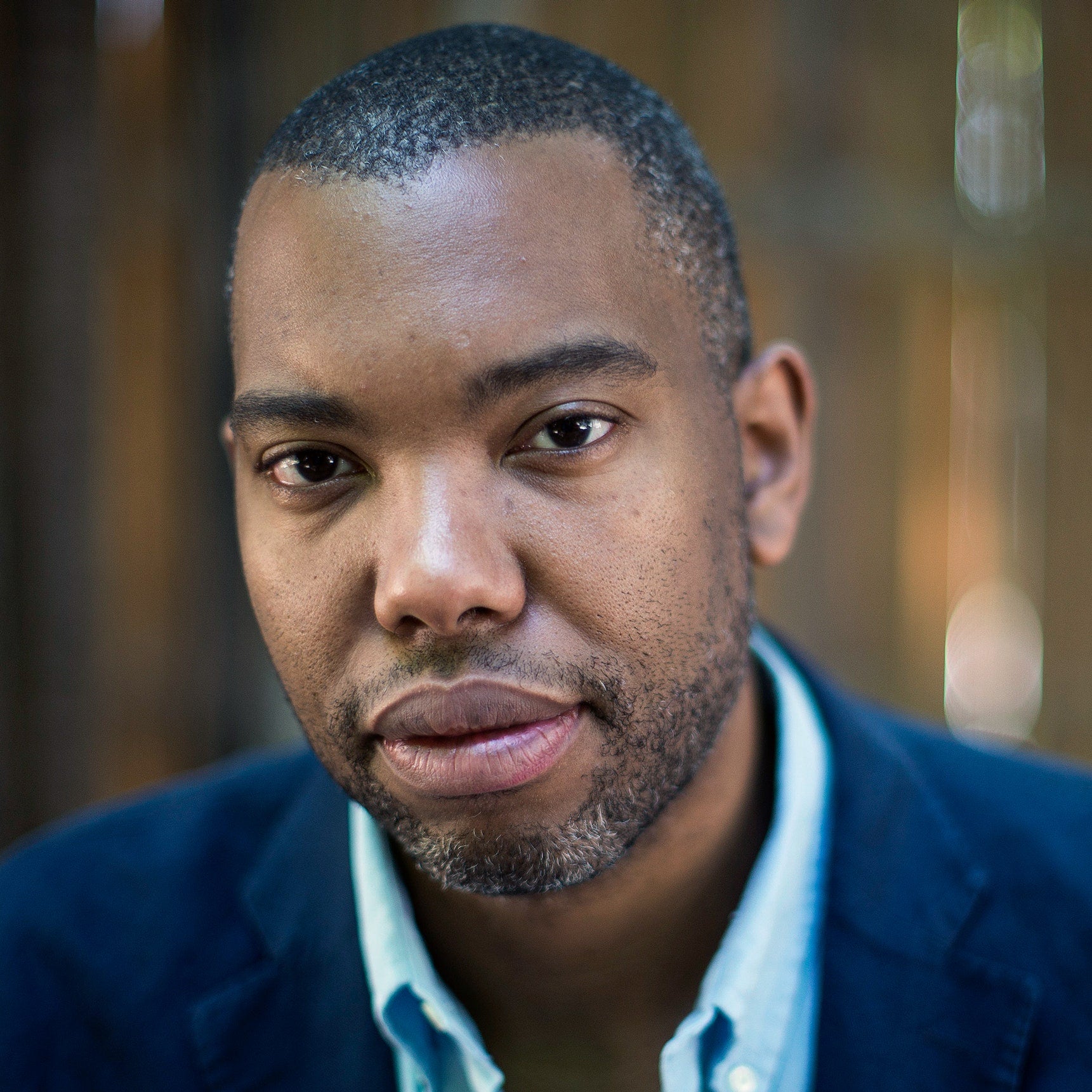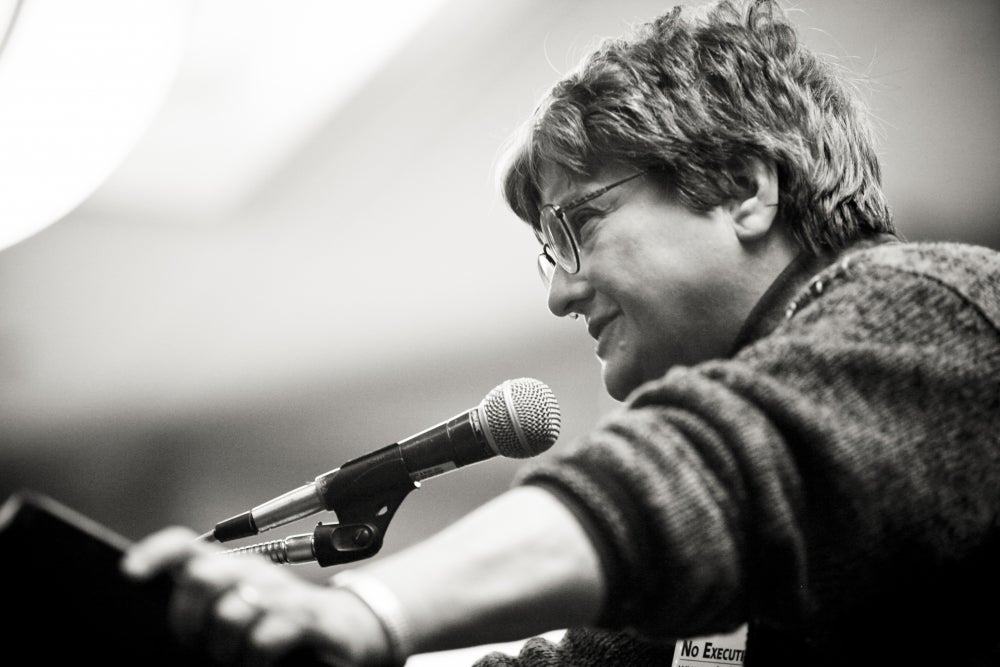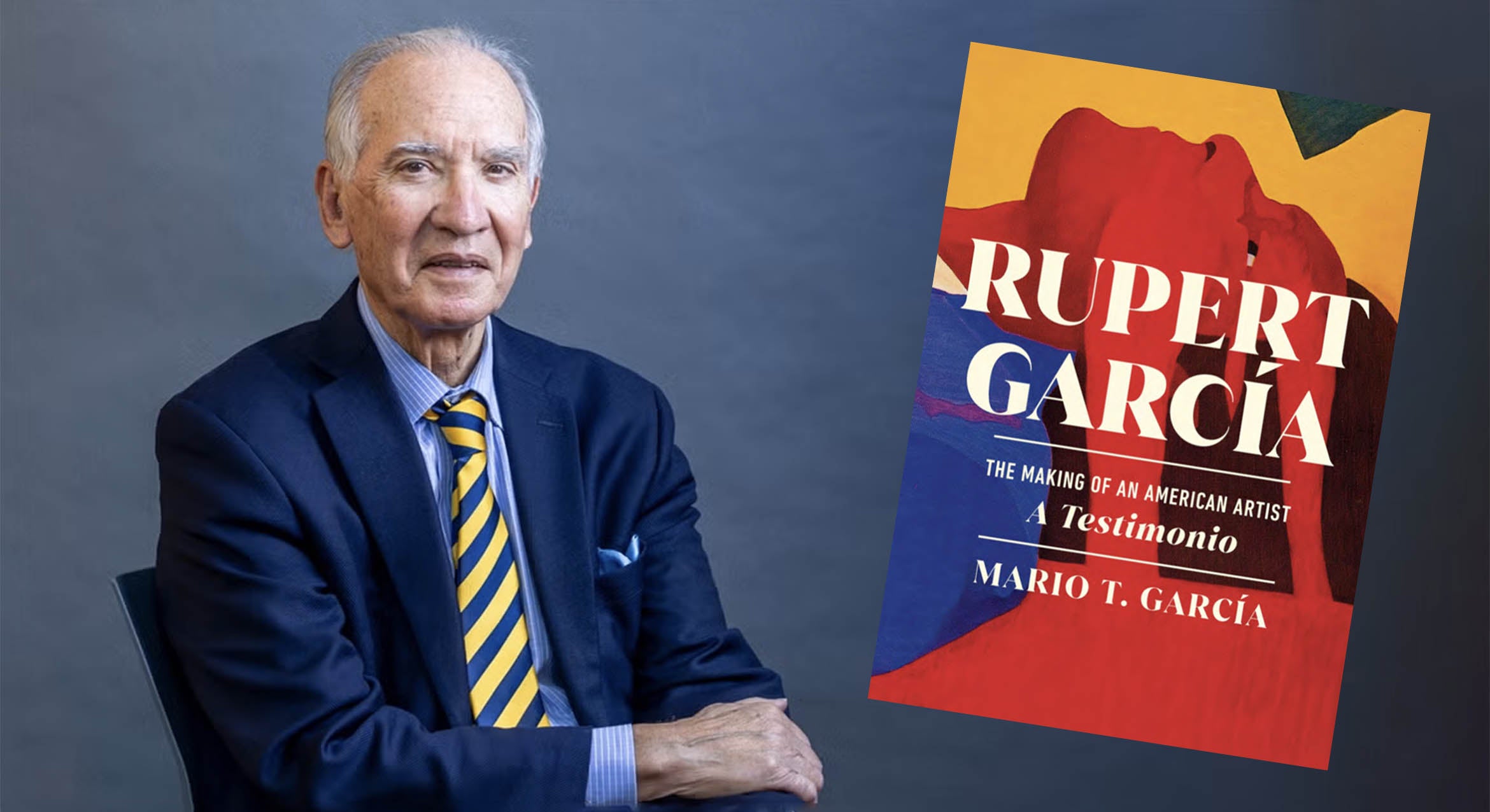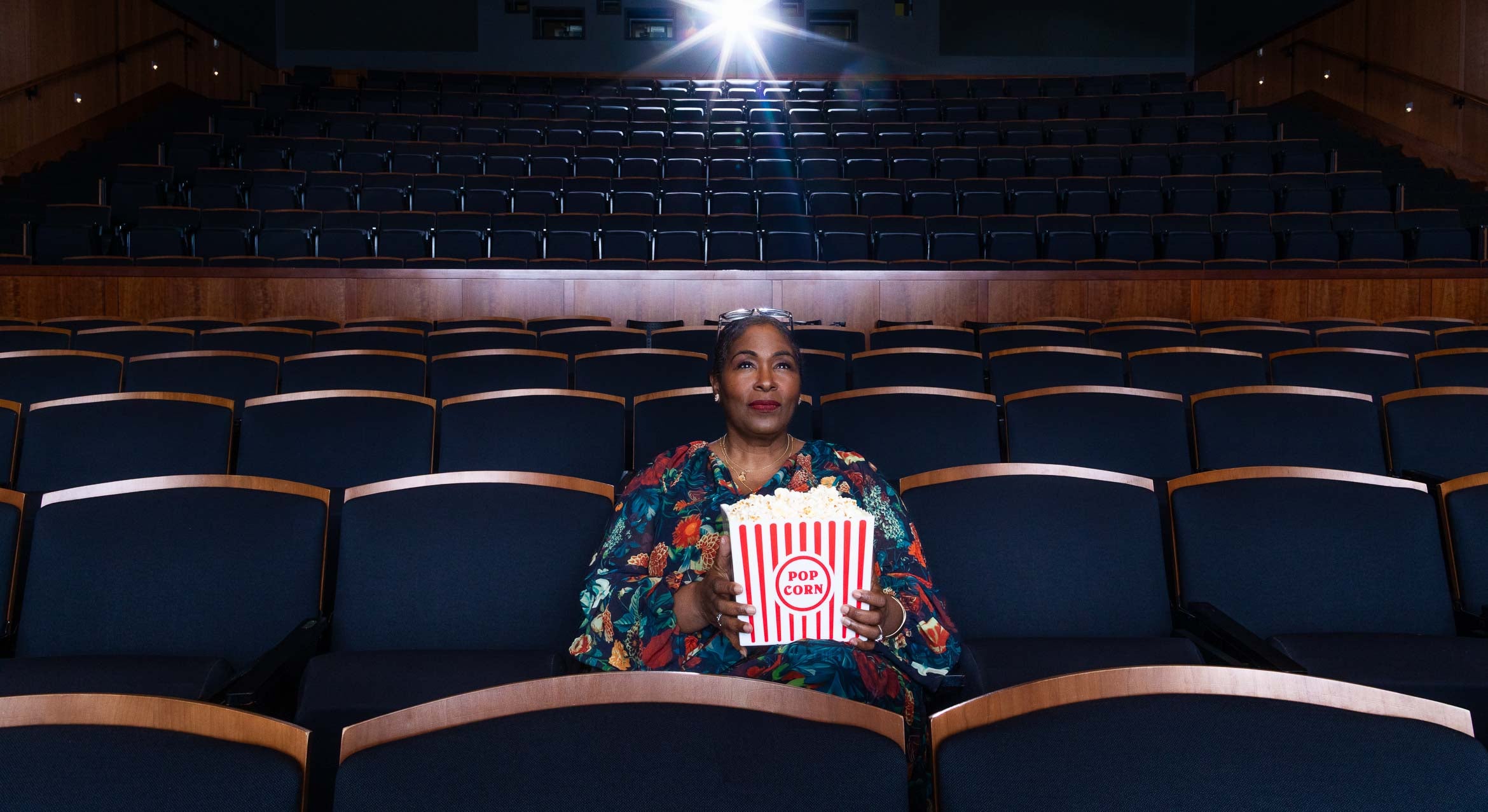Race to Justice
With the U.S. sitting at an inflection point on race and racism, UC Santa Barbara Arts & Lectures has unveiled a dynamic new series that will take a season-long deep dive into issues of systemic racism.
Race to Justice is a suite of events that will engage leading activists, creatives and thinkers to expand our understanding of racism and how race impacts society and to inspire an expansive approach to advancing racial equality. The series is the result of collaborations across campus between Arts & Lectures, the Division of Social Sciences, the Department of Black Studies and others.
Ticket sales begin today, Oct. 5, for virtual events taking place from October through January. Among the presenters slated for virtual events are race scholar and historian Ibram X. Kendi; attorney and criminal justice advocate Brittany K. Barnett; musician Rhiannon Giddens; filmmaker Dawn Porter, who will screen and discuss her documentary, “John Lewis: Good Trouble”; Sister Helen Prejean; Pulitzer-winning creator of the 1619 Project Nikole Hannah-Jones; author Ta-Nehisi Coates; and journalist Isabel Wilkerson.
“We’re confronting evidence of inequality in every corner of society, and it’s a moment of reckoning for the whole nation,” said Celesta Billeci, Miller McCune executive director of Arts & Lectures. “For many years A&L has been addressing complex issues and challenging problems. Beginning in October, we’re spearheading an in-depth look at systemic racism from every angle, including abolition, underlying conditions, reparations, criminal justice and more. In addition to what you see ‘on stage’ (whether virtual or in-person), we have a robust education outreach program to complement these events with activities that will directly impact and inspire students.”
“In the midst of a racial reckoning in our nation, UCSB’s Arts & Lectures ‘Race to Justice’ Series stands on the right side of this particular historical moment by centering Black lives and experiences,” said Ingrid Banks, associate professor and chair of Black studies, who was a key partner on developing the series. “The series brings together exceptional programming that will aid in making sense of the context for the protests we are currently witnessing across the country. The series will also highlight how Black people, in spite of racial injustice, have endured and continue to create rich cultural practices in the arts.
“Equally important is the educational component of the series,” Banks added. “Students will attend events free of charge, as well as have opportunities to join student-centered programming that will expand their understanding about racial injustice and justice. The ‘Race to Justice’ series appreciates the empowering nature of knowledge. Our campus and the broader Santa Barbara community will benefit tremendously from learning how Black people’s race to justice is a centuries-long project; a ‘race’ that everyone must recognize, and ultimately win.”
Paramount to Arts & Lectures is amplifying Race to Justice’s impact in the community. An extensive educational and community outreach schedule will be integrated with Race to Justice programming, providing additional opportunities for UCSB students and members of the community to engage with the speakers and creators and their ideas.
For virtual events taking place from October through January, Race to Justice speakers will be meeting virtually with UCSB students from across the campus.
Describing the series as “important, timely and necessary,” Sharon Tettegah, a professor of Black studies and director of UCSB’s Center for Black Studies Research, said that such events “should be regularly integrated in annual programming.”
“We have opportunities to build powerful relationships through, by, and with Black communities; however, we must first recognize and see human beings who are different from us as subjects and not objects to create equal opportunity and a socially just world,” Tettegah said. “Race to Justice provides such an opportunity to recognize and see human beings who have made a difference in this world through their ability to recognize human beings and through seeking justice by supporting anti-racism, anti-bigotry and much more.”
Belinda Robnette, vice chancellor for diversity, equity and inclusion at UC Santa Barbara, concurred. “Pulling together an extraordinary group of intellectuals, artists and activists, the ‘Race to Justice’ events not only highlight the significant contributions of African Americans, but give voice to the Black experience in the U.S.,” she said. “The much-needed series provides UCSB participants with an opportunity to engage in an educational journey that lays bare the roots, and ongoing reality of racial injustice.”
The series offers a mix of virtual presentations followed by Q&As as well as live events, including Jazz at Lincoln Center Orchestra with Wynton Marsalis (Wed., Feb. 3), Alvin Ailey American Dance Theater (Tues., April 13 & Wed., April 14), Bryan Stevenson (Fri., April 30) and Jon Batiste (Sat., May 22). Additional events will be announced throughout the season. A “Virtual Pack” of all eight virtual events is available for $80. Single tickets for virtual events start at $10 for the general public and are free for UCSB students.
In addition, UCSB Arts & Lectures’ Thematic Learning Initiative is creating free opportunities for further engagement through partnerships with Santa Barbara County organizations focused on human services, at-risk populations and leadership, as well as tools for interested individuals and small groups to further explore race in society and promote racial equality. Members of the community interested in the Thematic Learning Initiative can learn more about how to participate in Race to Justice activities throughout Santa Barbara County at www.thematic-learning.org.
“What excites me most about this ‘Race to Justice’ program — even beyond the stellar roster of nationally prominent speakers — is the explicit commitment, of Arts &Lectures, and of the speakers themselves, to amplify their impact through sustained dialogue with our campus community,” said Charles Hale, the SAGE Sara Miller McCune Dean of Social Sciences. “Especially in these troubled times, we need deep connection with one another, and critical reflection on the roots of the problems we face, as groundings for concerted action.”
Noted Chancellor Henry T. Yang, “We are in the midst of a momentous national reckoning on racial justice: a challenge to live up to our highest ideals of racial equity. Society-wide in scope, this challenge resonates strongly in every institution of higher education, including UC Santa Barbara. I thank our faculty, students and staff for our shared commitment to advancing inclusive dialogue on our campus. I also thank all of our advisory committee members, organizers, sponsors, speakers and participants in this important yearlong ‘Race to Justice’ series. Individually and collectively, they exhort us to confront racism and guide us toward racial equality. We look forward to listening, learning, and taking action together.”
“A&L has a distinguished history of bringing important artists, authors and public figures to both the community and the classroom to address the compelling issues of our times, said Executive Vice Chancellor David Marshall. “The ‘Race to Justice’ series exemplifies how A&L can bridge the campus and the public sphere when we need a sense of community and common purpose more than ever.”
As Arts & Lectures was programming its 2020-2021 season, Billeci said, the nation was confronting the deaths of George Floyd, Breonna Taylor, Ahmaud Arbery and so many others.” The idea for the series was sparked, and the campus quickly coalesced around its development.
“It became clear that this is a conversation we need to be having right now,” Billeci said. “It was important to partner across the campus to make sure that we were including as many voices as we could and to ensure that the compendium of events was inclusive in terms of voices we include and exhaustive in terms of perspectives we offer. I think we all realized we could achieve a stronger series by working together.”
Teaming first with Hale, then the Department of Black Studies, Billeci ultimately created and partnered with an advisory committee that includes Hale, Robnett, Banks and Tettegah, as well as Susannah Scott, divisional chair of the Academic Senate.
“Thanks to tremendous work of our campus partners, we’ve been able to create the fantastic program that Race to Justice is today, and we will continue to add new events throughout the year,” Billeci said. “Of course our hope for the series is to affect real change on our campus, in our community, and across our nation. We hope to inspire an expansive approach to advancing racial equality, one that provides us with tools to uncover, expose and dismantle systemic racism. As the late Congressman John Lewis said, ‘We must be headlights and not tail lights.’ Arts & Lectures promises to be headlights.”
---
Arts & Lectures is proud to present Race to Justice in association with the following UC Santa Barbara campus partners: Department of Black Studies; Center for Black Studies Research; Division of Social Sciences; Division of Humanities and Fine Arts; Division of Mathematical, Life, and Physical Sciences; Division of Student Affairs; Gevirtz Graduate School of Education; Graduate Division; College of Creative Studies; College of Engineering; MultiCultural Center; The Carsey-Wolf Center; UCSB Reads; Office of the Vice Chancellor for Diversity, Equity, and Inclusion; and Office of the Executive Vice Chancellor.
Lead sponsors for the Race to Justice series include Marcy Carsey, Connie Frank & Evan Thompson, Patty & John MacFarlane, Sara Miller McCune, Santa Barbara Foundation, Lynda Weinman & Bruce Heavin, Dick Wolf, and Zegar Family Foundation.






